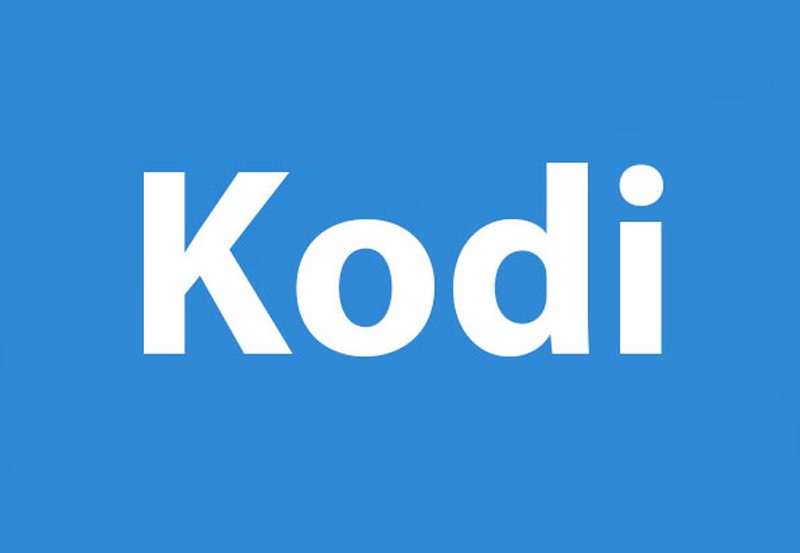Welcome to the fascinating world of Internet Protocol Television, often referred to as IPTV. In an age where our screens are inundated with a plethora of content choices, understanding the nuances of IPTV can empower you to make informed decisions about your viewing habits. But what exactly is IPTV, and how does it stack up against traditional broadcasting methods? In the coming sections, we’ll unravel these queries in a straightforward manner.
Buy 1 Year IPTV Subscription and Enjoy Unlimited Content
Understanding the Basics: What Exactly is IPTV?
IPTV stands for Internet Protocol Television. It’s a system where television services are delivered through the internet, rather than traditional terrestrial, satellite, or cable television formats. Think of it like streaming services, but rooted in the infrastructure of the internet, offering more flexibility and connectivity.
This technology allows you to watch on-demand or live television through your existing network connection. Whether it’s your favorite TV series, a blockbuster movie, or a nail-biting sports event, IPTV provides a range of content all accessible at the touch of a button.
Quick Tip:
Stream local and international TV with UK IPTV and get access to all your favorite channels.
How Does IPTV Work?
The mechanism of IPTV is quite distinct from traditional TV methods. It’s akin to how you browse websites, utilizing packet-switched networks—just like how data is transferred across the internet. This ensures efficient use of bandwidth, tailor-fitting user needs without clogging up the network.
To dive a bit deeper into the technicalities, IPTV is fundamentally different in that it delivers a video stream encoded as series of IP packets over a Gigabit Ethernet network, seamlessly flowing to your device. This modernizes how content is streamed, making it more accessible and user-friendly.
The Technology Behind IPTV
IPTV utilizes a complex of standardized protocols, which ensure compatibility and smooth broadcasting. It leverages IP address-driven delivery methods where content is uniquely identified by IP numbers. This is a more efficient way to send video content compared to the older broadcast systems.
Moreover, IPTV’s reliance on high-bandwidth broadband services demands stable and fast internet connections—but rewards users with unmatched flexibility in viewing, sans the constraints of traditional TV schedules.
Types of IPTV Services
When delving into IPTV offerings, you’ll come across various types tailored to diverse viewing preferences. Each stream is unique, catering to interests from entertainment to specific hobbies or areas of interest.
Live Television
This is akin to regular TV broadcasts, where you can watch shows and events as they are aired live. Think of sports events or real-time news broadcasts that offer the adrenaline rush of live viewing without delay.
Many sports aficionados consider these services essential for streaming because they’re often better than traditional streaming services in terms of accessibility and quality.
Video on Demand (VOD)
VOD services provide users with a catalog of available titles to watch at their convenience. This flexibility epitomizes the modern binge-watching culture. Whenever you want to watch a movie or catch up on a TV series, VOD makes it possible without waiting for reruns or special broadcasts.
Simply picking and choosing titles to watch on your schedule is one of IPTV’s significant draws, liberating viewers from predefined broadcast slots.
Time-Shifted TV and Catch-Up TV
Time-shifted TV allows you to watch shows on your schedule if you missed the broadcast. This feature also extends to ‘Catch-Up TV’, letting you watch programs that were broadcasted recently, fitting nicely in the lifestyles of those on the go.
No longer do you need to worry about missing an episode, as IPTV’s flexibility accommodates busy schedules quite amicably.
Advantages of IPTV Streaming
So, why should you consider IPTV over traditional TV services? The perks are aplenty. From diversity to ease of access, IPTV streaming isn’t just a trend; it’s a burgeoning medium with much to offer.
Convenience and Flexibility
Perhaps the most alluring advantage is the convenience it promises. With IPTV, the need for hefty equipment installations is all but eradicated. Instead, its reliance on internet technology means existing gadgets become your IPTV-ready devices.
This results in a smooth, hassle-free viewing experience devoid of bulky cables and satellite dishes—simply connect and watch.
Wide Range of Content
IPTV offers a panoply of channels and services from all corners of the globe. Whether you’re into local news or niche international programs, there’s a channel lineup awaiting that’s just right for you.
Additionally, IPTV caters exceptionally well to sports fans. With the best IPTV for streaming sports, catching international games or key local fixtures becomes both straightforward and satisfying.
Quality and Technological Advancements
The transition to IPTV doesn’t merely maintain the quality of content—it enhances it. With capabilities that support 4K, HD, and even interactive features, IPTV ensures high-fidelity entertainment that is both immersive and engaging.
Moreover, the seamless integration of technology allows for features like pause, rewind, and fast-forward, which elevates user control tenfold.
Challenges Facing IPTV Adoption
While IPTV is imbued with numerous advantages, like any budding technology, it does face a few hurdles that merit understanding.
Internet Dependency
The crux of IPTV’s operation is a reliable internet connection. Areas with fluctuating or subpar internet services may struggle to harness IPTV’s full potential, affecting streaming quality and thus viewer satisfaction.
Ensuring a strong, stable internet connection becomes paramount when planning to indulge in IPTV streaming unimpeded.
Potential Service Interruptions
Unlike traditional cable services often unaffected by internet woes, IPTV can be vulnerable to cyber threats and interruptions, which may impair service efficiency.
Users must often stay wary of security protocols and invest in robust software solutions as prophylactic measures against online threats and potential service disruptions.
The Pro Way to IPTV Experience
Transitioning to IPTV isn’t merely about adopting new technology but optimizing your entire viewing experience. Here’s how to make the most of it.
Choosing the Right Provider
Selecting a provider that meets your specific needs is crucial. With myriad options, comparing factors like channel variety, cost, and customer support becomes essential.
Foresight here ensures that you don’t compromise on service quality or fall into traps of unreliable IPTV providers.
Investing in Equipment
Although minimal, investing in quality equipment like routers and streaming devices can significantly enhance your IPTV experience.
Such investments pave the way for smooth streaming free of buffering woes and connectivity issues, bringing about a seamless viewing environment.
Real-life Applications: Who Benefits from IPTV?
The applicability of IPTV stretches far beyond home consumers. Many sectors leverage its robust capabilities to ensure operational excellence and tailored communications.
Businesses and Hospitality
In specific industries, such as hospitality, IPTV serves as a key differentiator, elevating the customer experience to new heights. Hotels, for example, incorporate IPTV to offer rich entertainment suites and personalized content.
This customization not only enhances guest satisfaction but also sets establishments apart in a fiercely competitive market.
Education and Corporate Sectors
Educational institutions, as well, harness the power of IPTV to deliver on-campus information channels, broadcasting essential updates and news quickly and efficiently.
IPTV’s adaptability ensures it plays a vital role in corporate communications too, fostering seamless internal communication and reinforcing educational deliveries through e-learning solutions.
Embarking on the IPTV Journey
As IPTV technology continues to evolve, so does its impact on how we consume media. It’s more than just a service; it’s a shift in how we understand and experience entertainment.
Whether you’re hunting for the best IPTV for streaming sports passionately or looking for a pro way to IPTV experience, the service offers a flexible entry point into a world of almost limitless content potential. As you delve deeper into its corridors, anticipating challenges and optimizing experiences become part of the enriching journey with IPTV.
FAQs about IPTV

What makes IPTV different from other streaming platforms like Netflix?
While services like Netflix offer pre-recorded, on-demand content, IPTV streams live television channels over the internet alongside offering similar VOD content. The blend of live broadcast and on-demand options within IPTV distinguishes it from standalone streaming services.
Is IPTV legal?
IPTV technology itself is legal; however, the legality of content streaming through IPTV depends on the licensing agreements in place. Opting for reputable providers who comply with legal distribution rights ensures lawful IPTV consumption.
Do I need any special equipment to use IPTV?
Primarily, you’ll need a compatible device like a smart TV, laptop, or streaming device plus a stable internet connection. Some providers may recommend specific devices or apps to optimize the viewing experience.
Can IPTV work on mobile devices?
Yes, IPTV can be accessed on mobile devices via dedicated apps or compatible browsers, allowing users to tap into their favorite content on-the-go with great convenience.
How can I find the best IPTV for streaming sports?
Research is key. Look for providers renowned for sports streaming, and consider trial periods to assess quality in real-time. User reviews and comments can also provide anecdotal insights that aid decision-making.
How to Stream IPTV Channels on Sharp AQUOS TVs





